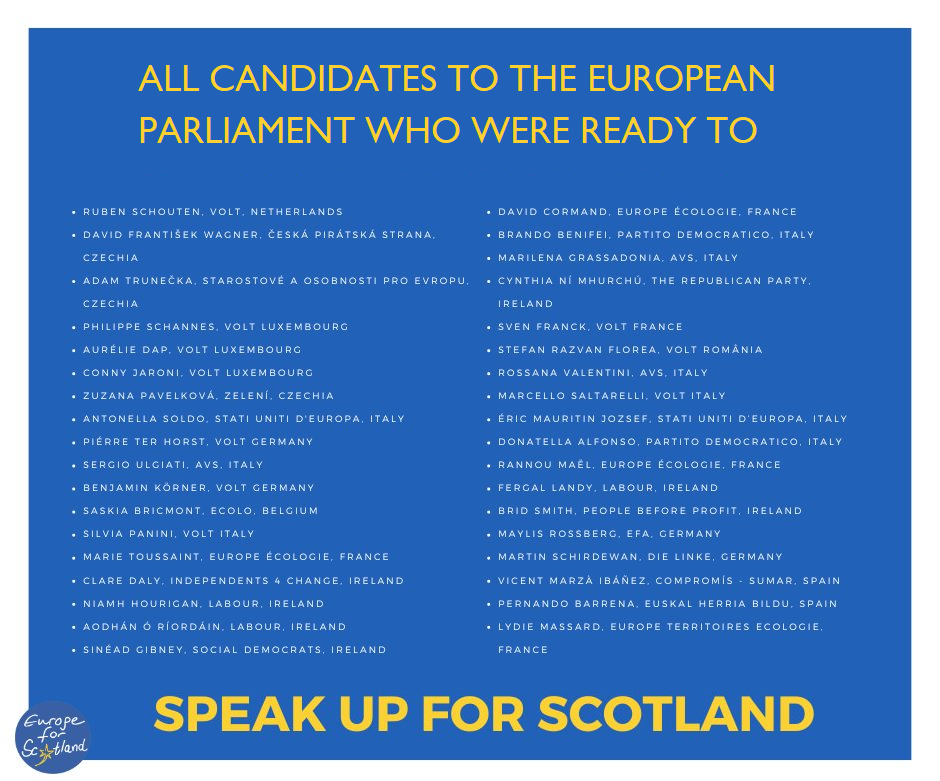In the febrile excitement that always accompanies the male European Football Championship – Scotland is playing Hungary tonight for an historic access to the knockout phase! – it will probably escape most commentators but today, it’s been eight years since the Brexit referendum.
Across the UK, a remarkable absence of any attempt to remember it will fill the day. Calls to make it a day of celebration have long subsided amidst the ever growing sentiment of dissatisfaction with a project that remains consistently opposed and bitterly regretted by what is now a large majority of the populace across England, Wales and Northern Ireland. Scotland is of course leading the way to abandon it altogether, with two thirds of voters consistently supportive of rejoining the EU, a significant increase over the already large majority who opposed Brexit in 2016.
Instead, most political analysis in the UK will focus on the General Election called by UK Prime Minister for the 4th of July – or rather, on its foregone conclusion, as poll after poll confirm the next UK Parliament will see a large majority of the Labour Party, with its leader Keir Starmer universally recognised as the almost certain next UK Prime Minister.
From our perspective, what is remarkable about the debate in the UK is the complete lack of reflection on how this outcome is likely to come about. It is only thanks to the completely dysfunctional UK electoral system that the 40% of votes at which Labour is currently polled will turn into the phenomenal majority of up to 80% of seats that some poll estimated.
This dramatic increase will be the result of the First-Past-The-Post electoral system. Surely we all ought to be worried when a minority is turned into such a large majority by virtue of a set of rules that have no place in democratic Europe and that are even known to increase economic inequality.
From a guest article for Europe for Scotland by Stuart Donald
It is therefore regrettable that the Labour leader has repeatedly ruled out reforming the electoral system, despite the overwhelming mandate for proportional representation of its own conference. And while we welcome his commitment to lower voting age to 16 (a provision applied in Scotland since 2015) indeed we share concerns expressed by many about the attitude towards democracy of a leadership which appears untroubled to purge political dissidents and comfortable in asserting its intention to ignore the democratic will of the Scottish people and Parliament for the entire duration of its term in office, all the while being praised by political pundits for his “ruthlessness”.
This is unfortunately another stark regression from the time when Labour championed Scottish devolution and is a sign of a certain lack of understanding of how the political dynamic unleashed by Brexit is weakening British democracy. Take for instance Tory recent reforms to curtail the right to protest and reinstate the provision that gives the Prime Minister the power to call an election at a time of their personal choosing (something unfathomable in virtually all European parliamentary democracies), both of which transfer power away from the people and to the government of the day, and neither of which Labour is planning to abolish.
Then of course, there is the Brexit policy itself. “We’re not rejoining the EU, we’re not rejoining the single market or the customs union. That isn’t our plan. It never has been. I’ve never said that as leader of the Labour party, and it’s not in our manifesto.” Starmer’s quote is unequivocal.
Meanwhile, our commitment to help the Scottish people return to the EU will continue. In fact, we are very happy to announce that out of the dozens of candidates who signed our pledge to prepare to welcome Scotland back in the EU, 9 have been duly elected to the European Parliament.
In European friendship and solidarity,
The Europe for Scotland Team
PS. If you’re not doing so already, make sure to follow us on Facebook, Instagram, Twitter and Youtube!
